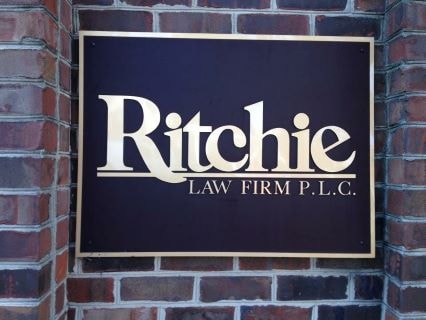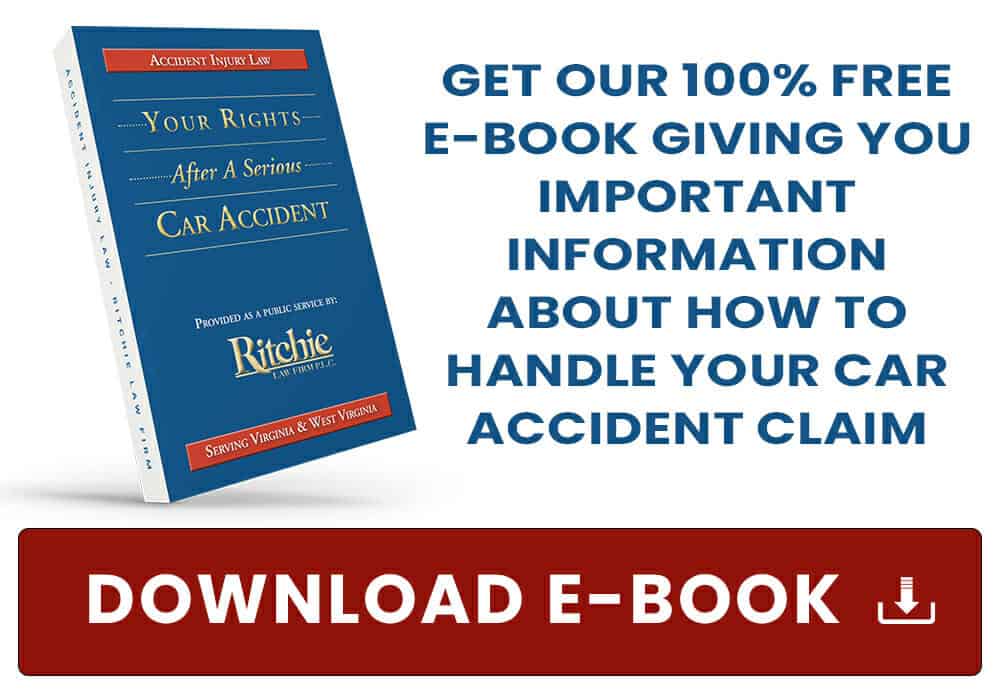10 Critical Do’s and Don’ts When Talking to Car Insurance Adjusters
In the aftermath of an accident, navigating the complex world of insurance claims can be a daunting task. The words you speak and the actions you take when communicating with insurance adjusters can have far-reaching consequences, potentially impacting your ability to receive fair compensation for your injuries and damages. This comprehensive guide will walk you through the essential steps to take and pitfalls to avoid when talking to the car insurance adjuster after an accident, ensuring that you protect your legal rights and maximize your potential compensation. It is crucial to consult a car accident lawyer to review your case and provide guidance before speaking to insurance adjusters.
Insurance Company: The High Stakes of Post-Accident Communication
Before delving into the specific do’s and don’ts, it’s crucial to understand the gravity of your interactions with insurance adjusters. An insurance claims adjuster is a professional trained to minimize the company’s financial liability by finding ways to reduce or deny your claim. Every word you utter and every document you provide can be scrutinized and potentially used against you. With this in mind, let’s explore the critical steps you should take and the actions you must avoid to safeguard your interests.
5 Crucial Do’s When Communicating with the Insurance Adjuster
1. Do Maintain a Calm and Polite Demeanor
While it’s natural to feel stressed and emotional after an accident, it’s imperative to remain composed when speaking with insurance adjusters. A calm and polite demeanor can help establish a more cooperative relationship, potentially leading to a smoother claims process. Remember, adjusters are more likely to be accommodating to individuals who treat them with respect. However, being polite doesn’t mean being a pushover – maintain a firm stance on your rights and needs throughout the conversation.
2. Do Document All Communication Meticulously
Keeping a detailed record of all interactions with insurance adjusters is paramount. This includes noting the date, time, and content of phone calls, as well as preserving copies of all written correspondence. These records can prove invaluable if disputes arise later in the claims process. Consider using a notebook or digital document to log this information. This level of organization can also demonstrate your seriousness and credibility to the insurance company.
3. Do Stick to the Facts and Avoid Speculation
When recounting the accident to an insurance adjuster, it’s crucial to stick to the facts that you know with certainty. Avoid speculating about what might have happened or making assumptions about fault. If you’re unsure about a particular detail, it’s perfectly acceptable to say, “I don’t know” or “I’m not certain.” Providing inaccurate information, even unintentionally, can damage your credibility and potentially jeopardize your claim. Focus on describing what you personally experienced and observed, leaving interpretations and conclusions to the professionals investigating the accident.
4. Do Request and Review All Documentation Before Signing
Insurance companies often ask claimants to sign various documents throughout the claims process. It’s crucial to carefully review any paperwork before putting pen to paper. Request copies of all documents for your records and take the time to thoroughly understand their contents. If you’re unsure about the implications of signing a particular form, don’t hesitate to consult an experienced personal injury lawyer. A personal injury attorney can review these documents and explain their potential impact on your claim, ensuring that you don’t inadvertently sign away your rights or agree to unfavorable terms.
5. Do Seek Immediate Medical Attention and Follow Treatment Plans
Your health should be your top priority after an accident. Seeking prompt medical attention not only ensures your well-being but also creates a crucial paper trail for your insurance claim. Documenting all medical treatment and bills is essential to support your insurance claim. Follow your healthcare provider’s treatment plan diligently and attend all follow-up appointments. This demonstrates the seriousness of your injuries and your commitment to recovery. Keep detailed records of all medical treatments, including dates of visits, prescribed medications, and any recommended therapies. This documentation can significantly strengthen your case when negotiating with insurance adjusters for fair compensation.
5 Critical Don’ts When Dealing with Insurance Companies
1. Don’t Admit Fault or Apologize
In the immediate aftermath of an accident, it’s human nature to want to apologize, even if you don’t believe you were at fault. However, any admission of guilt or apology can be construed as an acceptance of liability, potentially jeopardizing your claim. Be cautious about the information shared with the other party’s insurance company to avoid receiving a poor settlement offer. Insurance adjusters are trained to look for such statements and may use them to shift blame onto you. Stick to factual statements about what occurred without assigning fault or making apologetic remarks. Remember that determining liability is a complex process that should be left to investigators and legal professionals who have access to all the relevant information.
2. Don’t Provide a Recorded Statement Without Legal Counsel
Insurance adjusters often request recorded statements from claimants, presenting it as a routine part of the claims process. However, agreeing to a recorded statement without legal representation can be a risky move. These recordings can be analyzed for inconsistencies or statements that might be used to minimize your claim. If you’re asked to provide a recorded statement, politely decline and inform the adjuster that you’ll be happy to provide a written account of the accident after consulting with an attorney. This approach allows you to carefully consider your words and ensure that your rights are protected throughout the process.
3. Don’t Accept the First Settlement Offer Without Evaluation
Insurance companies often present initial settlement offers quickly, hoping to resolve claims for the lowest possible amount. It is crucial for car accident victims to seek fair compensation and consult with a personal injury attorney before accepting any settlement offer. While it might be tempting to accept an offer and move on, doing so without a thorough evaluation can be a costly mistake. Early settlement offers frequently undervalue the true extent of your damages, especially if you’re still in the process of recovery. Take the time to fully understand the long-term implications of your injuries, including potential future medical expenses and lost wages. Consult with a personal injury attorney who can assess the fairness of the offer and negotiate on your behalf if necessary. Remember, once you accept a settlement, you typically waive your right to seek additional compensation, even if your condition worsens over time.
4. Don’t Discuss Your Accident on Social Media
In today’s digitally connected world, it’s second nature to share life events on social media platforms. However, when it comes to accidents and insurance claims, maintaining social media silence is crucial. Insurance adjusters are increasingly turning to social media to gather information that could potentially undermine claims. A seemingly innocent post about your daily activities or a photo of you engaging in physical activities could be misconstrued and used to argue that your injuries are less severe than claimed. Additionally, discussing details of your accident online could lead to inconsistencies with your official statements. The safest approach is to refrain from posting about the accident or your recovery process until your claim is fully resolved.
5. Don’t Provide Unnecessary Personal Information
While it’s important to cooperate with the insurance company to a certain extent, be cautious about the amount and type of personal information you disclose. Stick to providing essential details directly related to the accident and your injuries. There’s no need to offer information about your personal life, work history, or financial situation unless it’s specifically relevant to your claim. Oversharing can sometimes lead to unintended consequences, with insurance adjusters potentially using this information to build a case against you or minimize your claim. If you’re unsure whether certain information is necessary, consult with a personal injury attorney before disclosing it to the insurance company.
Real-Life Examples of Communication Pitfalls
To illustrate the importance of careful communication with insurance adjusters, consider the following scenarios that we frequently see in our office:
Injury victims, often vulnerable and inexperienced in handling the aftermath of accidents, need legal representation to protect their rights and secure the compensation they deserve.
Case Study 1: The Premature Apology. Sarah was involved in a rear-end collision at a stop light. Shaken by the incident, she immediately apologized to the other driver, stating, “I’m so sorry, I should have been paying more attention.” Despite evidence suggesting the other driver was at fault for following too closely, Sarah’s apology was used by the insurance company to argue shared liability, significantly reducing her compensation.
Case Study 2: The Social Media Misstep. After filing a claim for back injuries sustained in a workplace accident, John posted photos of himself at a friend’s birthday party on social media. Although he was in considerable pain and only attended briefly, the insurance company used these images to argue that his injuries were less severe than claimed, leading to a protracted legal battle to secure fair compensation.
Case Study 3: The Hasty Settlement. Mark accepted an initial settlement offer for his car accident injuries within weeks of the incident. However, he later discovered that his injuries were more severe than initially diagnosed, requiring extensive physical therapy and potentially surgery. Unfortunately, by accepting the early settlement, Mark had waived his right to seek additional compensation, leaving him to cover significant medical expenses out of pocket.
These examples underscore the need for cautious and strategic communication throughout the claims process, highlighting how seemingly minor actions can have major consequences.
How an Attorney Can Help Navigate Insurance Conversations
Navigating the complex terrain of insurance claims can be overwhelming, especially when you’re dealing with the physical and emotional aftermath of an accident. This is where the expertise of a personal injury attorney becomes invaluable. An experienced lawyer who understands the laws surrounding car accidents can serve as your advocate, handling all communications with insurance adjusters on your behalf and ensuring that your rights are protected at every step of the process.
Here are some key ways an attorney can assist:
- Expert Negotiation: Attorneys have extensive experience in negotiating with insurance companies and understand the tactics adjusters use to minimize payouts. They can leverage this knowledge to secure a fair settlement that truly reflects the extent of your damages.
- Comprehensive Case Evaluation: A skilled attorney will conduct a thorough assessment of your case, including potential long-term impacts of your injuries. This evaluation helps ensure that all current and future damages are accounted for in your claim.
- Accurate Injury Assessment: A personal injury lawyer ensures that injuries are accurately assessed and documented, preventing premature settlements that do not cover the full extent of your damages.
- Protection from Common Pitfalls: Your lawyer can guide you on what to say (and what not to say) to insurance adjusters, helping you avoid common mistakes that could jeopardize your claim.
- Document Management: Attorneys can handle all paperwork related to your claim, ensuring that all necessary documentation is properly filed and deadlines are met.
- Legal Representation: If your case goes to court, having an attorney who’s been involved from the beginning ensures seamless representation and a strong legal strategy.
Moreover, studies have shown that accident victims who hire attorneys often receive significantly higher settlements compared to those who handle claims on their own. This is particularly true in cases involving serious injuries or complex liability issues.
 Protecting Your Rights and Maximizing Your Claim
Protecting Your Rights and Maximizing Your Claim
Navigating the aftermath of an accident is a challenging journey, fraught with potential pitfalls that can impact your ability to receive fair compensation. By adhering to the dos and don’ts outlined in this guide, you can significantly enhance your position when dealing with insurance adjusters. Remember, every interaction with the insurance company has the potential to affect the outcome of your claim.
Key takeaways include:
- Always maintain a calm and professional demeanor
- Document all communications meticulously
- Stick to the facts and avoid speculation or admission of fault
- Seek immediate medical attention and follow treatment plans diligently
- Avoid providing recorded statements or unnecessary personal information
- Refrain from discussing your accident on social media
- Don’t accept initial settlement offers without thorough evaluation
Perhaps most importantly, recognize the value of professional legal guidance in this process. A skilled personal injury attorney can be your strongest advocate, ensuring that your rights are protected and that you receive the full compensation you deserve for your injuries and damages.
If you’ve been involved in an accident in Virginia and are grappling with insurance claims, don’t navigate this complex process alone. Ritchie Law Firm’s team of experienced Virginia car accident attorneys is here to help. We offer free case evaluations to assess your situation and provide guidance on the best path forward. Contact us today to ensure that your rights are protected and to take the first step towards securing the compensation you deserve.
Remember, the decisions you make in the aftermath of an accident can have long-lasting implications. By approaching insurance communications with caution and understanding how your statements can affect your insurance policy and compensation, and seeking professional legal assistance, you can protect your interests and focus on what matters most – your recovery and well-being.
Talk with a Virginia Car Accident Lawyer
If you or a loved one suffered significant injuries in a car accident in Virginia, Ritchie Law Firm is here to help. The experienced, certified car accident attorneys at the Ritchie Law Firm have helped thousands of injured victims and their families recover the compensation they deserve following car accidents. We know Virginia car accident law. Contact us by phone at 540-433-6124 or by using our online contact form.





